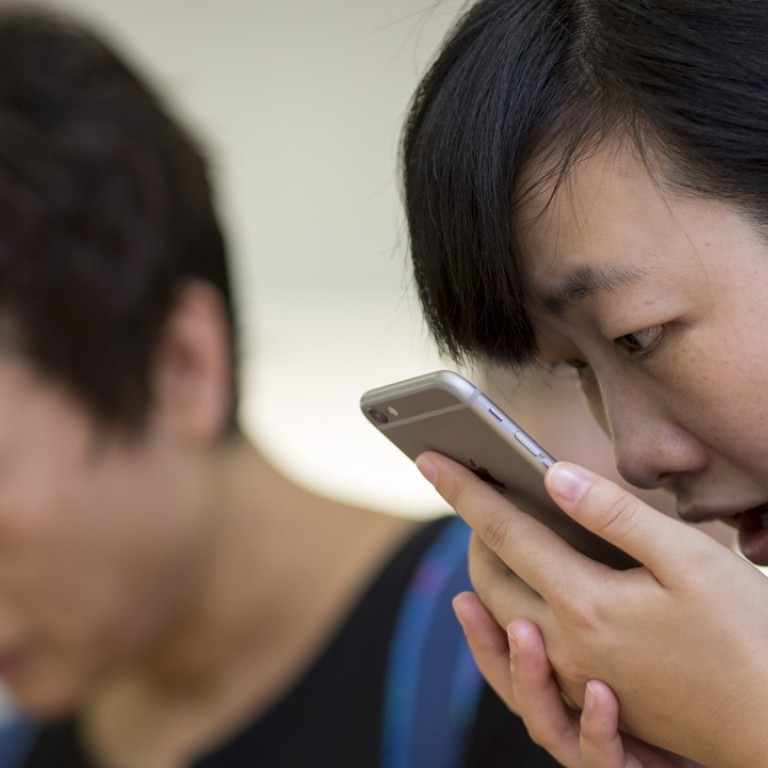
Chinese AI champion iFlytek censors politically sensitive terms on its translation app
- While the Android version of Shenzhen-listed iFlytek’s translation app was censored, the rival app from Baidu did not show similar restrictions
Voice-recognition technology provider iFlytek, one of China’s designated artificial intelligence (AI) champions, has censored politically sensitive terms from its popular translation app amid the government’s broader campaign to clean up online content.
The Android version of the company’s iFlyTranslate app has removed items such as “Tiananmen”, “independence” and the name of China’s President, “Xi Jinping”, from showing up as results in its system.
A voice query of those items on the app will return a text translation without the sensitive word or name, and in some cases no results are returned at all, according to a recent tweet by Jane Manchun Wong, a software engineer who regularly reverse-engineers apps to uncover hidden features.
The iOS version of the iFlyTranslate app, however, did not censor those three items, based on tests conducted on Tuesday by the South China Morning Post on the two versions.
Wong said every voice query made on the app is sent as an MP3 file to iFlyTek’s servers, which process each recording before results are returned.
There is no government regulation on blocking politically sensitive phrases on digital translation services in China, according to a person close to iFlytek who declined to be identified because he is not authorised to comment.
With many high-profile events in China using iFlytek’s digital translation services, it was necessary for the company to remove sensitive words and phrases from its system, the person said.
Shenzhen-listed iFlytek did not immediately respond to inquiries made about its translation app.

The move to censor politically sensitive items from iFlytek’s translation app showed the pressure that platform operators face in complying with the Chinese government’s sweeping crackdown on online content.
With the world’s biggest internet population and largest number of smartphone users, China has seen the central government tighten its grip on all online content, from news and celebrity gossip to off-colour jokes. Beijing already censors phrases and words in media, text messaging and social networks, clamping down especially on terms it deems critical of the government or against the Communist Party’s ideology.
Last week, the Cyberspace Administration of China announced that it will require by November 30 assessment reports from any internet platform that could be used to spread dissent and mobilise social movements online.
As a member of China’s national AI team, iFlyTek’s voice intelligence products and services have been used in some of the most high-profile conferences in China.
As many as 500 iFlyTek translation devices were provided to foreign guests at the annual Boao Forum for Asia conference, held in Hainan province earlier this year. The company’s translation service was also used at the International Forum on Innovation and Emerging Industries Development held in Shanghai in September.
When the Post tested other sensitive items on the iFlyTranslate app, the results were mixed. The app, for example, translated the voice query for the name “Winnie” to “wen ni”. Trying “Winnie and Friends”, the app translated only the second part of the phrase and left out the name.
That result was not surprising following the removal of Chinese memes that have drawn comparison to Xi’s appearance with the Winnie-the-Pooh character in recent years.
A voice query of “Tiananmen massacre” on the iFlyTranslate app returned only a Mandarin character for “Big”, while “Taiwan independence” was translated only to “Taiwan” in Mandarin.
Text translations are similarly obscured. A query for “Taiwanese independence” in Mandarin on the app yielded an asterisk. Using the same query in English query came back with only the word “Taiwan”.
Still, not all translation apps have been censored. A check of the Baidu Translate app showed no similar restrictions found in the iFlytek app. Text and voice translations for “Tiananmen June 4”, “Taiwan independence” and even “Winnie-the-Pooh” in both Mandarin and English returned the exact translations.
Baidu did not immediately respond to queries about its translation app.


